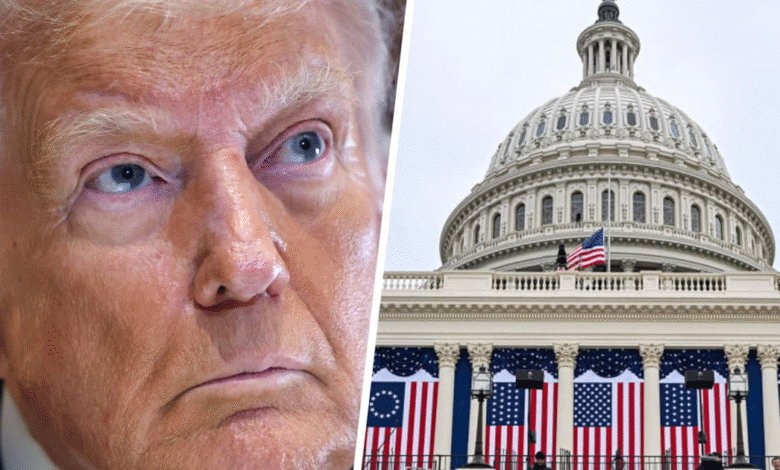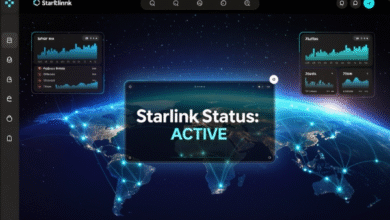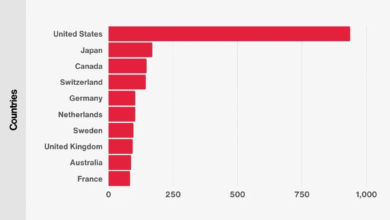Trump Megabill Faces Last-Minute Challenges in House

In a dramatic turn of events, President Donald Trump’s megabill has landed in the House, demanding a final stamp of approval before it can reach his desk. As House Speaker Mike Johnson navigates through mounting Republican objections, he faces the tightrope of balancing party support against growing dissent regarding the Senate’s proposed changes. With the urgency of a self-imposed July 4 deadline looming, lawmakers are committed to streamline negotiations and push the legislation forward. The Senate’s controversial revisions have sparked a fierce debate, particularly concerning the proposed $5 trillion increase in the national debt, which raises concerns among conservative factions. This pivotal moment in Trump legislation not only reflects the challenges within the party but also sets the stage for potential ramifications in the broader political landscape as the House gears up for a vote.
As the debate intensifies over the much-talked-about Trump megabill, a spectrum of perspectives emerge from within the Republican party, revealing deep fissures regarding fiscal responsibility. House Speaker Mike Johnson must tread carefully to appease both supporters and skeptics of the amended bill, especially since several legislators have openly criticized the Senate’s revisions and their potential financial implications. The dynamics of this high-stakes negotiation reflect broader discussions surrounding the implications of government spending, particularly in light of an anticipated uptick in national debt. With voices from the House weighing in, the path toward consensus continues to be fraught with political tension as the July 4 deadline approaches. Observers are keenly watching how these legislative developments will ultimately shape the party line and influence the upcoming electoral prospects.
Overview of Trump’s Megabill and Legislative Journey
President Donald Trump’s megabill has made significant strides, now resting in the House of Representatives after a nail-biting Senate vote. The bill passed narrowly with a 51-50 margin, thanks to a tie-breaking vote from Vice President JD Vance. This pivotal moment came after days of negotiations, revealing the tightrope House Speaker Mike Johnson must walk as he addresses Republican objections and strives to move the bill forward. As the clock ticks towards a self-imposed July 4 deadline, the pressure mounts on Johnson to rally his party members behind Trump’s comprehensive legislative package.
The initial approval of Trump’s megabill in the Senate has sparked mixed reactions among House Republicans. Some of them are already vocal about their disagreements with the revisions made during the Senate’s negotiations, suggesting they prefer the original House proposal, which was passed earlier. This dissent raises questions about Johnson’s ability to unite his team’s efforts to ensure party-line support when only a few dissenting votes could derail the legislative process. As the discussions progress, it’s crucial to monitor how these internal dynamics may shape the final outcome for Trump’s ambitious agenda.
Objections From House Republicans: Key Concerns
While Trump’s megabill has made it to the House, several Republican representatives have expressed clear objections. Notably, Rep. Andy Ogles has labeled the Senate’s version a ‘dud,’ indicating a strong preference for the House’s earlier version of the bill. Such criticisms may reflect broader concerns among fiscally conservative Republicans, particularly regarding the bill’s potential to increase the national debt significantly. Rep. Ralph Norman’s opposition further exemplifies the division within the party, posing a substantial hurdle for Speaker Johnson as he seeks to garner enough support for passage.
The core issues at stake include deeper Medicaid cuts and a higher debt ceiling increase than originally proposed. The Senate’s $5 trillion increase in the debt ceiling stands in stark contrast to the House’s suggested $4 trillion. As analysts have pointed out, this could result in an alarming rise in the national debt, estimated by the Congressional Budget Office to exceed $3.9 trillion — a figure causing considerable alarm among lawmakers prioritizing fiscal responsibility. With Johnson needing to secure votes from skeptical colleagues, the ongoing debate will likely be pivotal in determining the fate of this vital legislation.
House Speaker Mike Johnson’s Strategy for Navigating Voting Dynamics
As House Speaker Mike Johnson navigates the complex landscape surrounding Trump’s megabill, his strategy hinges on managing party unity while addressing the concerns of dissenting Republicans. His ability to lose only three votes emphasizes the fine line Johnson must tread, as even a few defections could jeopardize the bill’s progression through the House. To foster a collaborative atmosphere, Johnson must engage directly with skeptics, ensuring that their objections are heard and possibly addressed through amendments, thereby reducing the risk of backlash during the final vote.
Moreover, Johnson faces additional challenges beyond dissenting voices; attendance issues due to recent severe weather events in Washington could further complicate the voting process. House members, unable to vote remotely, may find their participation limited, which could inadvertently skew the results in favor of those opposed to the bill. In this precarious situation, Johnson’s leadership and strategic foresight will be instrumental in orchestrating a successful vote and preserving the Republican agenda ahead of the approaching July 4 deadline.
Implications of Senate Changes on Financial Accountability
The recent changes made by the Senate to Trump’s megabill have significant implications for financial accountability in federal spending. The increase in the debt ceiling and larger overall expenditures have sparked concern among fiscal conservatives who fear the long-term impacts on the national debt. While Senators have defended these changes as necessary to facilitate crucial economic investment, their bipartisan nature reflects the often contentious balance between immediate financial relief and sustainable fiscal policy.
Understanding how these alterations affect the Republican base is essential. Many party members view increased national debt as detrimental to future generations. As noted by various members, including Reps. Ogles and Norman, the sentiment against the proposed cuts to essential services like Medicaid raises pressing ethical questions about the responsibility of lawmakers in managing taxpayer funds. As the implications of these adjustments become clearer, pressure mounts on House Republicans to weigh their ideological commitments against the practical realities posed by the Senate’s alterations.
Republican Unity versus Individual Dissent in Legislative Approval
The path to finalizing Trump’s megabill demonstrates the tension between Republican unity and individual dissent within the party. House Speaker Mike Johnson, positioned to navigate these challenges, must rally support from members who may not align entirely with the party line. The dynamics of dissent, as represented by specific lawmakers’ vocal opposition to the Senate’s amendments, highlight the fragility of party cohesion in the face of controversial legislation. With some members opting to propose alternative amendments, the question remains whether Johnson can secure enough consensus to push the legislation through.
In reflecting on this internal division, it’s evident that individual representatives are becoming increasingly empowered to voice their discontent, potentially reshaping the party’s legislative agenda. As emphasized by the objections surrounding the Senate’s revisions, the need to maintain a unified Republican front grows imperative for achieving successful legislative outcomes. Johnson’s task will not only involve negotiations with skeptical members but also reinforcing the importance of party solidarity in light of upcoming voting sessions.
The Intersection of Public Opinion and Legislative Actions
Public opinion plays a critical role in shaping legislative actions, particularly in the contentious climate surrounding Trump’s megabill. As House Republicans grapple with proposed changes, ongoing polling reveals that voters are closely watching how their representatives act concerning fiscal accountability and national debt concerns. The contrasting views of Trump’s priorities versus those of the general public may create friction, as seen in reactions to ensure that spending cuts do not negatively impact essential services, such as healthcare.
Moreover, lawmakers may find themselves in a precarious position where their voting decisions can significantly influence their reelection prospects. The scrutiny from constituents regarding their support for increased national debt interventions, such as the $5 trillion increase, could significantly impact public trust in Republican leadership. Therefore, as House members deliberate on the bill, their actions will not only reflect party agendas but also resonate with the broader electorate that demands accountability and responsible governance.
Consequences of Delays on the Legislative Process
Delays in the legislative process can have far-reaching consequences, particularly for Trump’s megabill, which aims to address critical economic issues. The looming July 4 deadline imposes an urgent timeline for lawmakers to execute their plans, but with several Republicans expressing objections and attendance hurdles looming, the potential for postponements hangs heavily in the balance. As the atmosphere grows tense, any delays could obfuscate bipartisan negotiations and hinder critical economic progress that this bill is intended to stimulate.
Furthermore, the perception of congressional gridlock may unintentionally undermine public confidence in the government’s ability to address pressing needs. Consternation arising from unmet deadlines, such as that set by the Republicans, may lead to further skepticism among voters regarding the efficacy of their elected officials. As House leadership strives to expedite the passage of Trump’s megabill, the cost of delaying legislative action can serve as a stark reminder of the intricacies involved in achieving consensus amidst diverging political narratives.
Examining the Financial Projections Associated with Trump’s Megabill
The financial projections associated with Trump’s megabill are critical factors shaping legislative discussions. Analysts have raised concerns about the consequences of a possible $5 trillion increase in the debt ceiling, particularly in terms of its long-term ramifications for economic stability. As the Congressional Budget Office iterates the anticipated debt increase of $3.9 trillion, it becomes imperative for Republicans to address these projections transparently, reassuring their constituents about the bill’s sustainability.
This examination of financial forecasts will not only influence party member decisions but also affect public confidence in the Republican agenda. Voters are increasingly attuned to the implications of spending, and how those fiscal policies align with their economic realities. As the debate over Trump’s megabill progresses, understanding the financial implications will be crucial in determining the overall acceptance of the bill among wary House Republicans and a scrutinizing public.
Future Challenges and Opportunities for Trump’s Administration
As Trump’s administration seeks to push forward with his megabill, both challenges and opportunities loom on the horizon. The evolving political landscape within the House, marked by dissent among Republicans, may test the administration’s ability to pivot swiftly and address internal concerns surrounding the bill’s provisions. Recognizing and adapting to these challenges will be fundamental for maintaining party unity and advancing Trump’s legislative ambitions.
However, opportunities exist for the Trump administration to leverage broader public discourse surrounding economic issues to its benefit. By actively engaging with constituents and emphasizing their commitment to fiscal responsibility, lawmakers can reshape the narrative toward a more favorable reception of the bill. Success hinges on the administration’s capacity to navigate these complex dynamics while pushing for reforms that resonate with both party lines and public sentiments.
Frequently Asked Questions
What is the current status of Trump’s megabill in Congress?
As of now, President Donald Trump’s megabill is in the House after being passed by the Senate with significant revisions. House Speaker Mike Johnson needs to secure enough votes to pass the Senate’s modified version before a self-imposed July 4 deadline.
Why are there Republican objections to the Senate version of Trump’s megabill?
Some Republicans have voiced objections to the Senate’s revisions to Trump’s megabill, citing concerns over deeper Medicaid cuts and an increased national debt ceiling. Prominent voices such as Rep. Andy Ogles have criticized the bill as a ‘dud’ and are pushing for a different approach than what the Senate approved.
How could the changes in Trump’s megabill affect the national debt?
The Senate version of Trump’s megabill proposes a $5 trillion increase in the debt ceiling, which analysts suggest could increase the national debt by over $3.9 trillion. This has raised significant concerns among fiscally conservative Republicans.
What was the voting outcome when the Senate approved Trump’s megabill?
The Senate approved Trump’s megabill with a narrow vote of 51-50, with Vice President JD Vance breaking the tie. This close margin reflects the contentious nature of the bill and potential divisions among Republican lawmakers.
How does House Speaker Mike Johnson plan to manage votes for Trump’s megabill?
House Speaker Mike Johnson can afford to lose only three votes from his party to pass Trump’s megabill along party lines. He is navigating a challenging situation as several Republicans within his conference have already expressed objections to the Senate’s version.
What are the potential consequences if some House members miss the vote on Trump’s megabill?
If House members are unable to attend the vote on Trump’s megabill due to issues such as bad weather, their absence could jeopardize the outcome, as all votes need to be cast in person. This could complicate Johnson’s efforts to meet the necessary support for passage.
What major changes did the Senate make to Trump’s megabill compared to the House version?
The Senate’s modifications to Trump’s megabill include a $5 trillion increase in the debt ceiling and deeper cuts to Medicaid, which differ significantly from the House-approved version that proposed a $4 trillion increase.
How are public figures reacting to Trump’s megabill?
Public reactions to Trump’s megabill have been varied; for example, Elon Musk labeled the bill as ‘DEBT SLAVERY’ while promising to unseat Republican supporters, highlighting the divisive nature of the legislation.
What deadline is looming for Congress regarding Trump’s megabill?
Congress has set a self-imposed deadline of July 4 to finalize Trump’s megabill, putting pressure on lawmakers to resolve current objections and pass the legislation before this date.
What should we expect in the coming days regarding Trump’s megabill?
In the coming days, lawmakers must address Republican objections and navigate the vote in the House to ensure that Trump’s megabill can be sent to the President’s desk for signature before the July 4 deadline.
| Key Point | Details |
|---|---|
| Trump Megabill Status | Currently in the House for final approval after Senate revisions. |
| Republican Objections | Some Republicans oppose the Senate version; objections led by Rep. Andy Ogles and Rep. Ralph Norman. |
| Final Senate Vote | Passed narrowly 51-50; Vice President JD Vance cast the tie-breaking vote. |
| House Voting Dynamics | Speaker Mike Johnson can lose only 3 votes for party-line passage. |
| Vote Attendance Issues | Severe weather conditions may hinder member attendance for the vote. |
| Self-Imposed Deadline | Trump’s bill has a July 4 deadline, which he has recently softened on. |
| Concerns on Expenditures | House Republicans worry about larger overall spending and debt increases. |
| Debt Ceiling Increase | Senate version proposes $5 trillion increase in the debt ceiling. |
| National Debt Impact | CBO analysis indicates Senate bill could increase national debt by over $3.9 trillion. |
Summary
The Trump megabill remains a contentious piece of legislation currently in the House, facing opposition from several Republican lawmakers. As the deadline approaches, House Speaker Mike Johnson’s ability to rally support will be tested amidst concerns over spending and increased national debt. The political landscape surrounding the Trump megabill could lead to significant ramifications for future Republican strategies and fiscal policies.




